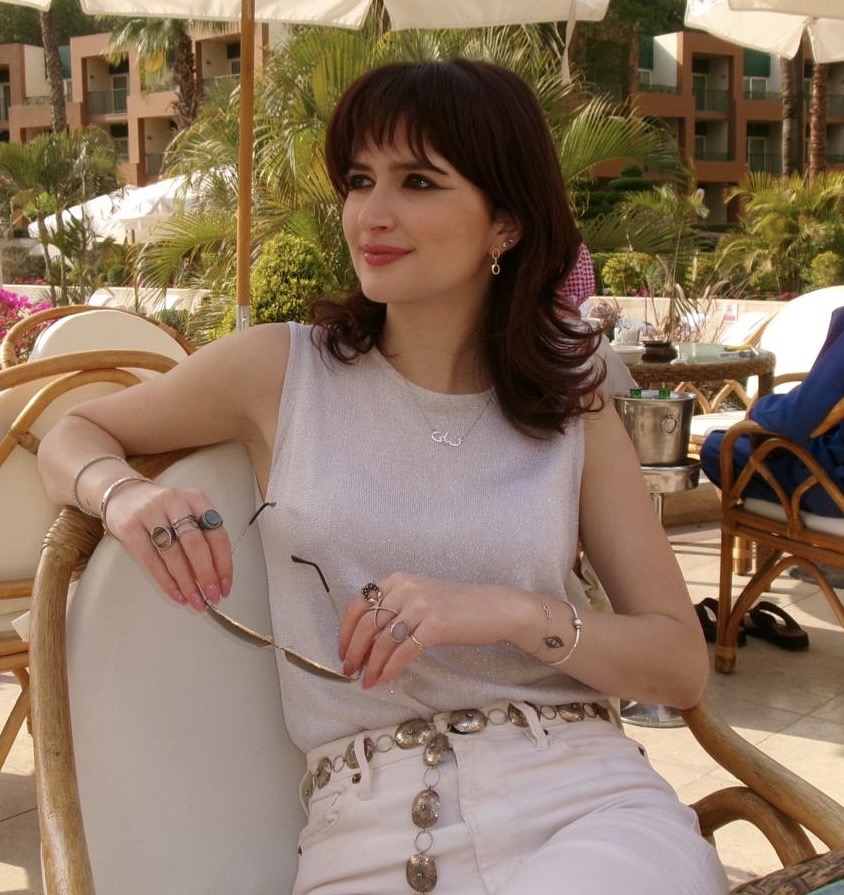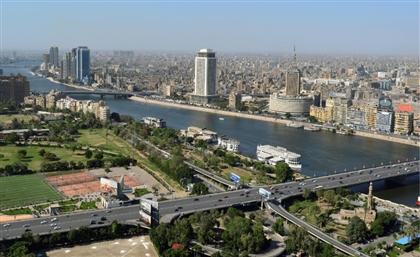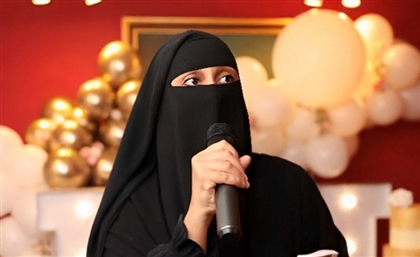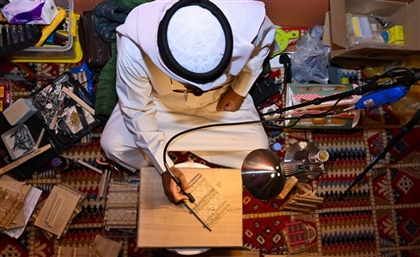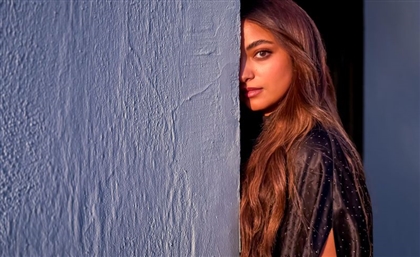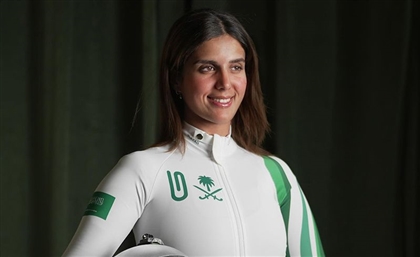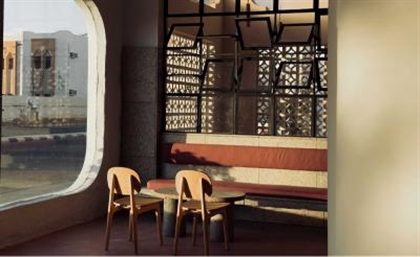With Hoda Abrahim You Will Find Love, Inshallah
Hoda Abrahim is the star of Hulu's The Muslim Matchmaker. She will go to the ends of the earth to find you your person—by even cold messaging eligible singles on LinkedIn.
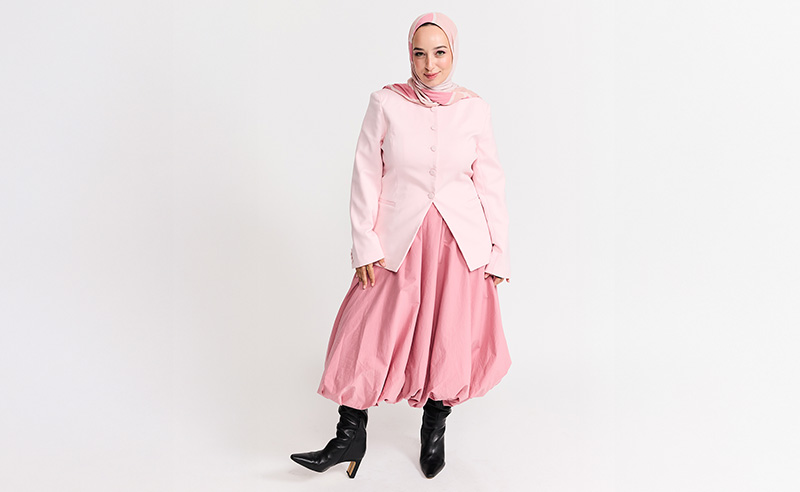
Long before Hoda Abrahim was the star of Hulu’s The Muslim Matchmaker, she was your go-to guru if you were looking for love in the Muslim community.
Abrahim didn’t think of it as a career, she was just a ‘connector’—she always had been. Even outside of love, if someone was looking for a job, she’d get them a referral. If someone was moving to a new city, she would find them friends. When her older brothers wanted to get married, she was the one who found their wives. Soon, people started messaging her—before the term ‘matchmaker’ even existed.
“Hey,” they’d text. “I heard you set people up.”
“Think of me as a headhunter,” she explained. Abrahim stores an enormous database of eligible singles in her head ready to match you with. From cold messaging on LinkedIn to sliding into Instagram DMs, she will “go to the ends of the earth to find your person.”
“No one grows up thinking, ‘I’m going to be a matchmaker,’” Abrahim said, but she was able to crack the code and turn her life's greatest passion into a career through a business called ‘Love, Inshallah’—a premium service helping Muslims, mainly in the West, find love. Now, she’s been a professional matchmaker for eight years from her base in Houston, Texas, although her roots are in Egypt.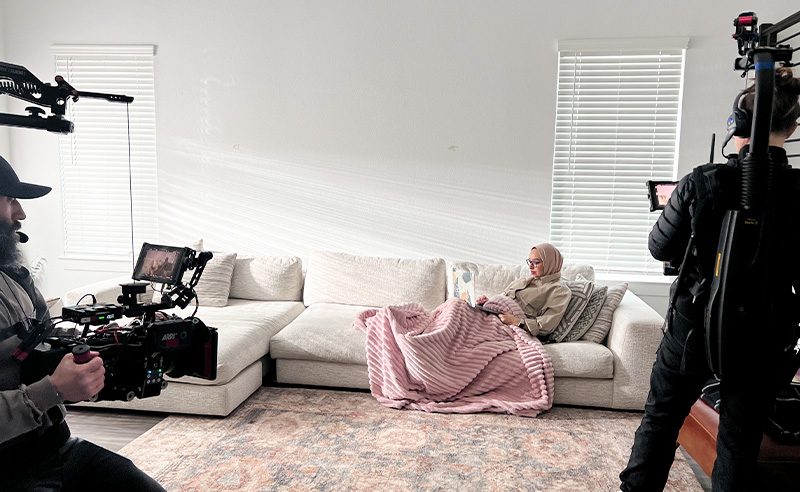 After Indian Matchmaking went viral, producer Smriti Mundra messaged Abrahim on Instagram during peak COVID lockdown in 2020. She had the idea of expanding to Muslim matchmaking. Three years of video calls and lengthy discussions finally led to the green light for the eight-episode series that aired in February 2025.
The show revealed a side of Muslim life that is usually kept private to audiences around the world. Abrahim admitted that she was nervous to be a part of the show. She grew up in a conservative household where Western media was often viewed with skepticism for its historically harmful portrayal of Islam. But she saw how the production team worked hard to center authentic voices by having people like executive producer Senain Kheshgi in the creative room to guarantee a Muslim perspective in the editing process.
It was also important to Abrahim that they casted across a diverse swath of practicing Muslims—from Hijabi to unveiled, Desi to Arab, New York- to Los Angeles-based—to showcase the richness of the community.
“We’re not a monolith,” Abrahim said. “You have people who practice to varying degrees and interpret the religion in their own ways. How each person lives and expresses their faith is going to look different.”
“This project was an ode to the Muslim diaspora and to Muslims in general. We finally get to have something on screen that was made by us, with our voices woven through every step of the way,” she continued. “I feel we really achieved that.”
In The Muslim Matchmaker, Abrahim and her co-host Yasmin Elhady held the simple ‘Rules of Three’ at the core of their dating philosophy: three dates, three months, and 300 questions—in that order. It is a framework that came from how dating apps have changed romantic connection, Abrahim said, where people are quick to write each other off with a single swipe or just a few back-and-forths in the messages.
So, step one: go on three dates over three weeks before you make your initial yes-or-no judgement, Abrahim advised. This is the ‘intentional talking stage.’ At that point, you’ll have enough data points to decide whether or not you want to continue with said person.
If it's a yes, the next three months—stage two—is when you evaluate the emotional connection and ask yourself: “Do I want to start talking about a commitment timeline?” Abrahim said, thinking along the lines of, “I have some trust with this person, let me widen the scope.”
For different couples this period entails different steps, like bringing families into the picture or doing Al-Fatihah—which is like an early-stage engagement wherein both families recite the first chapter of the Qu’ran.
Step three is answering the 300 questions—a list of important topics to address to ensure a happy, thriving marriage. While Abrahim didn’t reveal the questions, she explained it as “a list of things to keep in mind when you're getting to know somebody.”
“We want to equip you with the right information to know—is this truly the person for you?”
You won’t be on the same page in every response, and that’s okay, but these questions are designed to help you navigate those differences respectfully. Abrahim pointed to financial literacy as the top topic to cover, which is one of the biggest issues she’s seen couples face in marriage. How you save, spend, and make money doesn’t often come up naturally in a budding relationship, but financial stress and/or misalignment is one of the main causes of divorce, she said.
Abrahim has successfully matched over 80 couples. What is the secret? I asked.
Her answer: part divine intervention, part flexibility.
“When it's your time and God has planned it for you, nothing can stop it,” she said, but beyond the religious, people who are open-minded and flexible during the process, tend to thrive. It’s a mindset that carries into the relationship and marriage—being open, adaptable, and willing to meet each other where you are emotionally and intellectually.
It was only necessary that I asked her advice on my own love life.
“Hoda,” I began. “I need your help.”
“Give me the tea,” she said.
“My issue is that I can never get past those first three weeks with anyone I date. I always get the ‘ick’,” I spilled. “What do I do?”
Her first piece of advice was to define my core values, which I had never been asked to articulate before. For Hoda, her core values are how she practices her faith and moving with kindness in the world. I defined mine as ambition, compassion, and political consciousness.
“To find the people with those values,” she instructed, “you need to physically be in spaces, places, and events that reflect those values.”
Her second piece of advice: put my friends and family to work. Tell the people who know me best and share my values that, “Hey, I’m single and want to seriously meet somebody, who do you know?”
“You'd be hella surprised at how many people come out of the woodwork when you are clear and direct about the fact that you are looking,” Abrahim said.
If you’re going the dating app route, she gave a golden nugget of guidance: only talk to one person at a time, and try to take the conversation out of messages and face-to-face as quickly as you can.
“When you’re meeting someone, pay attention to how your body feels,” she said. “Our minds don’t always serve us well. Notice if your shoulders are tense or relaxed, if you feel calm or jittery. Your body gives you signals your mind might try to talk you out of, so really listen to it. That openness makes a huge difference.”
As for that checklist that so many of us have in our heads, myself included, Abrahim wants us to differentiate between what we want, and what we need.
“As much as we’d all like the 6’5” guy in finance, that’s not necessarily going to be the person who’s invested in you,” she clarified. “I really urge you to think beyond the next six months—think about your whole life. Is this someone whose opinion you’d value in tough times?”
“Thinking long term, even early on, really matters.”
I could see why her services are so coveted.
“The funnel just shrinks and shrinks and shrinks until you find the person who has this same understanding and interpretation of life and culture and religion,” she said, an assurance she has repeated to those tired from years of dating without finding their match.
“You just need one person who is right for you.”
Hulu is not available in Egypt, but you can stream The Muslim Matchmaker regionally on Disney Plus.
After Indian Matchmaking went viral, producer Smriti Mundra messaged Abrahim on Instagram during peak COVID lockdown in 2020. She had the idea of expanding to Muslim matchmaking. Three years of video calls and lengthy discussions finally led to the green light for the eight-episode series that aired in February 2025.
The show revealed a side of Muslim life that is usually kept private to audiences around the world. Abrahim admitted that she was nervous to be a part of the show. She grew up in a conservative household where Western media was often viewed with skepticism for its historically harmful portrayal of Islam. But she saw how the production team worked hard to center authentic voices by having people like executive producer Senain Kheshgi in the creative room to guarantee a Muslim perspective in the editing process.
It was also important to Abrahim that they casted across a diverse swath of practicing Muslims—from Hijabi to unveiled, Desi to Arab, New York- to Los Angeles-based—to showcase the richness of the community.
“We’re not a monolith,” Abrahim said. “You have people who practice to varying degrees and interpret the religion in their own ways. How each person lives and expresses their faith is going to look different.”
“This project was an ode to the Muslim diaspora and to Muslims in general. We finally get to have something on screen that was made by us, with our voices woven through every step of the way,” she continued. “I feel we really achieved that.”
In The Muslim Matchmaker, Abrahim and her co-host Yasmin Elhady held the simple ‘Rules of Three’ at the core of their dating philosophy: three dates, three months, and 300 questions—in that order. It is a framework that came from how dating apps have changed romantic connection, Abrahim said, where people are quick to write each other off with a single swipe or just a few back-and-forths in the messages.
So, step one: go on three dates over three weeks before you make your initial yes-or-no judgement, Abrahim advised. This is the ‘intentional talking stage.’ At that point, you’ll have enough data points to decide whether or not you want to continue with said person.
If it's a yes, the next three months—stage two—is when you evaluate the emotional connection and ask yourself: “Do I want to start talking about a commitment timeline?” Abrahim said, thinking along the lines of, “I have some trust with this person, let me widen the scope.”
For different couples this period entails different steps, like bringing families into the picture or doing Al-Fatihah—which is like an early-stage engagement wherein both families recite the first chapter of the Qu’ran.
Step three is answering the 300 questions—a list of important topics to address to ensure a happy, thriving marriage. While Abrahim didn’t reveal the questions, she explained it as “a list of things to keep in mind when you're getting to know somebody.”
“We want to equip you with the right information to know—is this truly the person for you?”
You won’t be on the same page in every response, and that’s okay, but these questions are designed to help you navigate those differences respectfully. Abrahim pointed to financial literacy as the top topic to cover, which is one of the biggest issues she’s seen couples face in marriage. How you save, spend, and make money doesn’t often come up naturally in a budding relationship, but financial stress and/or misalignment is one of the main causes of divorce, she said.
Abrahim has successfully matched over 80 couples. What is the secret? I asked.
Her answer: part divine intervention, part flexibility.
“When it's your time and God has planned it for you, nothing can stop it,” she said, but beyond the religious, people who are open-minded and flexible during the process, tend to thrive. It’s a mindset that carries into the relationship and marriage—being open, adaptable, and willing to meet each other where you are emotionally and intellectually.
It was only necessary that I asked her advice on my own love life.
“Hoda,” I began. “I need your help.”
“Give me the tea,” she said.
“My issue is that I can never get past those first three weeks with anyone I date. I always get the ‘ick’,” I spilled. “What do I do?”
Her first piece of advice was to define my core values, which I had never been asked to articulate before. For Hoda, her core values are how she practices her faith and moving with kindness in the world. I defined mine as ambition, compassion, and political consciousness.
“To find the people with those values,” she instructed, “you need to physically be in spaces, places, and events that reflect those values.”
Her second piece of advice: put my friends and family to work. Tell the people who know me best and share my values that, “Hey, I’m single and want to seriously meet somebody, who do you know?”
“You'd be hella surprised at how many people come out of the woodwork when you are clear and direct about the fact that you are looking,” Abrahim said.
If you’re going the dating app route, she gave a golden nugget of guidance: only talk to one person at a time, and try to take the conversation out of messages and face-to-face as quickly as you can.
“When you’re meeting someone, pay attention to how your body feels,” she said. “Our minds don’t always serve us well. Notice if your shoulders are tense or relaxed, if you feel calm or jittery. Your body gives you signals your mind might try to talk you out of, so really listen to it. That openness makes a huge difference.”
As for that checklist that so many of us have in our heads, myself included, Abrahim wants us to differentiate between what we want, and what we need.
“As much as we’d all like the 6’5” guy in finance, that’s not necessarily going to be the person who’s invested in you,” she clarified. “I really urge you to think beyond the next six months—think about your whole life. Is this someone whose opinion you’d value in tough times?”
“Thinking long term, even early on, really matters.”
I could see why her services are so coveted.
“The funnel just shrinks and shrinks and shrinks until you find the person who has this same understanding and interpretation of life and culture and religion,” she said, an assurance she has repeated to those tired from years of dating without finding their match.
“You just need one person who is right for you.”
Hulu is not available in Egypt, but you can stream The Muslim Matchmaker regionally on Disney Plus.







